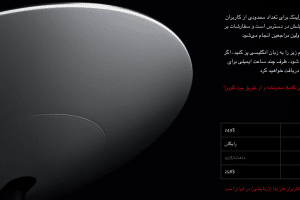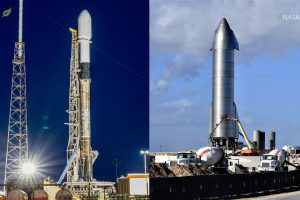- 🚀 SpaceX plans to sue the FAA over “regulatory overreach” following fines for launch violations.
- 💰 The FAA fined SpaceX over $600,000 for violations during two launches in 2023.
- 📝 SpaceX made changes to launch procedures that were not approved in time by the FAA.
- 🏗️ The use of an unapproved rocket propellant farm contributed to the fines.
- ⏳ SpaceX has 30 days to respond to the FAA, while Musk accuses the FAA of political bias.
- 🌍 Musk suggests that the fines and delays are potentially retaliatory actions by the FAA.
In a surprising turn of events, SpaceX, a leading name in space exploration, has announced its decision to take legal action against the Federal Aviation Administration (FAA) citing “regulatory overreach.” This lawsuit arrives on the heels of significant fines levied against the space exploration giant, highlighting a complex relationship between regulatory bodies and innovative enterprises. In this blog post, we delve deep into the specifics of the case, outline the implications for the space industry, and explore the broader context of regulatory oversight.
Understanding the Conflict: SpaceX vs FAA
1. Contextual Background: SpaceX, under the leadership of Elon Musk, has consistently pushed the boundaries of space exploration. However, this ambition has sometimes brought them into conflict with regulators, particularly the FAA, which is responsible for overseeing the safety and legal compliance of all space launch activities in the United States.
2. The Catalyst: FAA Fines
- In mid-2023, SpaceX conducted two notable launches: the Satria-1 launch on June 18 and the XXIV/Jupiter launch later in July.
- The FAA subsequently fined SpaceX a combined total of over $600,000 due to alleged violations in these launches.
Detailed Exploration of Launch Violations
1. Satria-1 Launch:
- SpaceX reportedly made procedural changes for this launch, including modifications to the launch control room and removal of certain readiness checks. These changes, although technically effective, were implemented without the FAA’s timely approval.
- Financial Implications: The violation cost SpaceX approximately $350,000.
2. XXIV/Jupiter Launch:
- A significant issue was the use of a newly constructed rocket propellant farm that lacked FAA approval at the time of the launch.
- Financial Implications: This action led to a proposed penalty of $283,009.
SpaceX’s Legal Response
Elon Musk’s Standpoint:
- Elon Musk’s declaration of legal action against the FAA includes accusations of regulatory overreach and politically motivated behavior.
- Musk’s sentiment suggests that the fines and procedural delays imposed by the FAA may be retaliatory.
The Broader Implications:
- Regulatory Challenges: This lawsuit brings to light the perennial tension between rapidly evolving technological enterprises and the regulatory frameworks designed to manage them.
- Innovative Conundrums: Companies like SpaceX are often at the forefront of innovation, necessitating a regulatory approach that is both agile and science-informed.
Broader Context: Regulation and Innovation
1. The Role of the FAA:
- As advancements in space technology continue at a breakneck pace, the role of regulatory bodies like the FAA becomes ever more crucial in ensuring safety without stifling innovation.
2. Balancing Innovation with Oversight:
- The SpaceX vs FAA case serves as a pivotal point of discussion on how best to balance innovation with necessary regulatory oversight.
Conclusion: The Path Forward
As SpaceX gears up for its legal battle, the narrative extends beyond fines and lawsuits to touch upon deeper questions about the future of space exploration and regulatory practices. Will this lawsuit prompt a reevaluation of how rapidly advancing technologies are regulated? Only time will tell. In the meantime, stakeholders across the industry watch closely as this drama unfolds.





